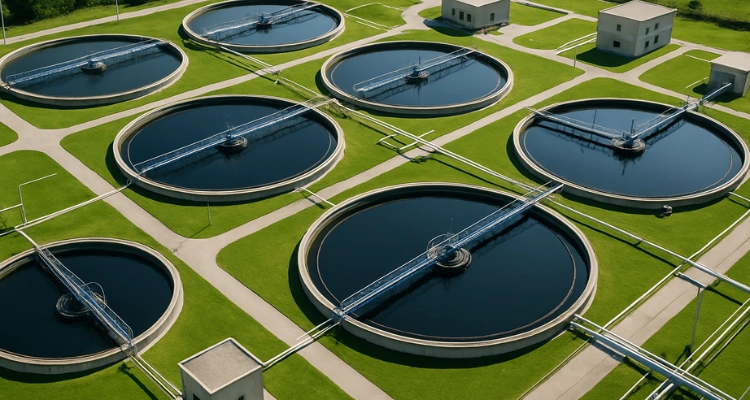India’s wastewater management sector is undergoing a transformation, with small and medium enterprises (SMEs) emerging as key players in driving innovation, sustainability, and efficiency. As water scarcity and pollution concerns intensify, SMEs are stepping up to fill critical gaps left by traditional centralized systems, offering scalable, cost-effective, and decentralized wastewater solutions.
For investors and financial advisors, this sector presents a unique opportunity for growth and impact, especially as regulatory frameworks and market demand continue to evolve.
The Role of SMEs in Wastewater Management
SMEs are uniquely positioned to address India’s wastewater challenges due to their agility, local expertise, and ability to innovate. Unlike large corporations, SMEs can quickly adapt to regional needs, implement tailored solutions, and foster community engagement. Their focus on decentralized systems allows for rapid deployment in both urban and rural areas, where centralized infrastructure is often lacking.
- SMEs drive innovation in water recycling and reuse.
- They provide affordable, scalable solutions for small industries and communities.
- Their localized approach ensures compliance with environmental regulations and community needs.
The Current Wastewater Management Landscape in India
India generates vast quantities of wastewater, with only a fraction being treated. Urban areas face severe pollution, while rural regions lack basic sanitation infrastructure. The market is projected to grow from INR 192.44 billion in 2024 to INR 353.50 billion by 2030, driven by water scarcity, regulatory mandates, and rising awareness.
- 72% of urban wastewater goes untreated, polluting water bodies and groundwater.
- Only 28% of urban wastewater is treated, and 55% of households lack proper drains.
- The sector is seeing increased investment in automation, recycling, and sustainable practices.
How SMEs Are Changing the Wastewater Management Value Chain?
SMEs are reshaping the wastewater management value chain by introducing decentralized treatment systems, real-time monitoring, and community-based solutions. These innovations reduce dependency on large-scale infrastructure, lower operational costs, and improve water reuse rates.
- Decentralized systems treat wastewater onsite, reducing the need for extensive piping and infrastructure.
- Real-time monitoring improves efficiency and reduces operating costs.
- Community engagement ensures sustainable operation and maintenance.
Key Innovations Led by SMEs
SMEs are at the forefront of technological advancements in wastewater management. From anaerobic biological treatment to advanced filtration and recycling, their innovations are making a significant impact.
- Anaerobic biological treatment followed by chemical coagulation for effective pollutant removal.
- Decentralized wastewater treatment solutions (DEWATS) for simplicity and product reuse.
- Real-time monitoring systems to optimize plant efficiency and reduce costs.
Challenges SMEs Face
Despite their potential, SMEs face several challenges in scaling their operations and accessing capital. Regulatory compliance, technology access, and funding remain in significant hurdles.
Compliance, Capital & Technology Access
- SMEs must comply with strict environmental regulations, including zero-liquid discharge (ZLD) mandates for certain industries.
- Access to capital is limited, with underdeveloped funding ecosystems for wastewater projects.
- Skilled professionals and technical expertise are in short supply, affecting system design and maintenance.
Why Are Investors Eyeing Wastewater SMEs?
The wastewater management sector offers attractive investment opportunities for financial advisors and institutional investors. With a growing market, regulatory support, and increasing demand for sustainable solutions, wastewater SMEs are poised for growth.
- The sector is projected to grow at a compound annual rate of 10.72% from 2025 to 2030.
- Public-private partnerships (PPPs) are encouraged, providing additional funding avenues.
- Recurring revenue streams from water reuse and treatment services offer stable returns.
Conclusion
SMEs are playing a crucial role in India’s wastewater management, driving innovation, sustainability, and efficiency. For investors and financial advisors, this sector presents a unique opportunity for growth and impact.
By supporting wastewater SMEs, stakeholders can contribute to a cleaner, more sustainable future while achieving strong financial returns.














